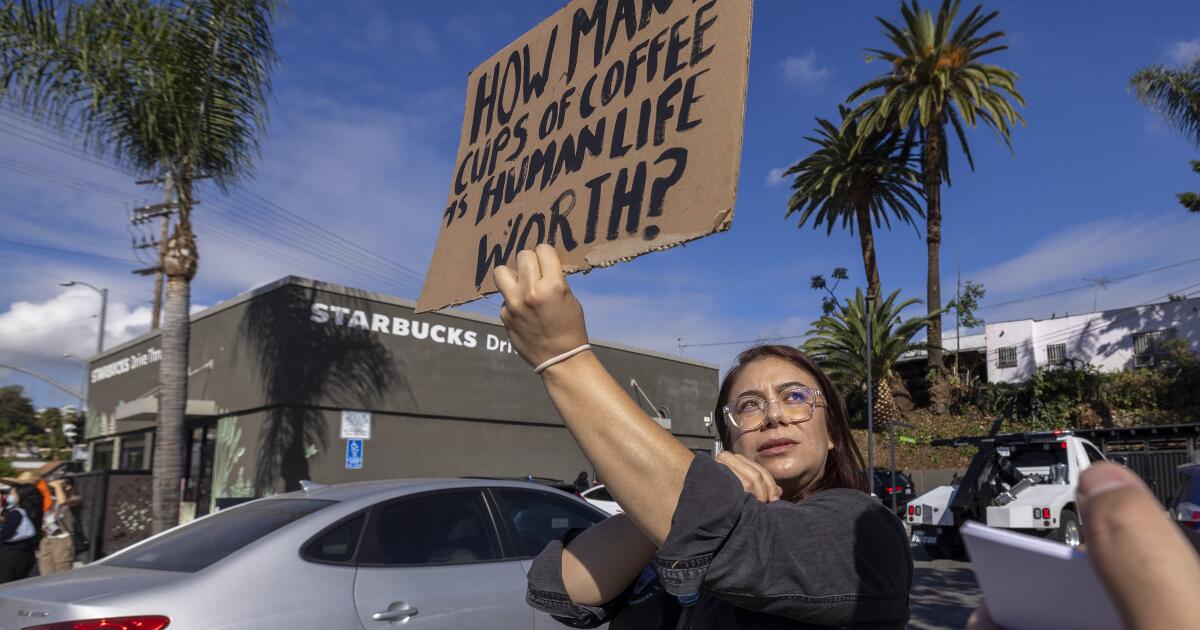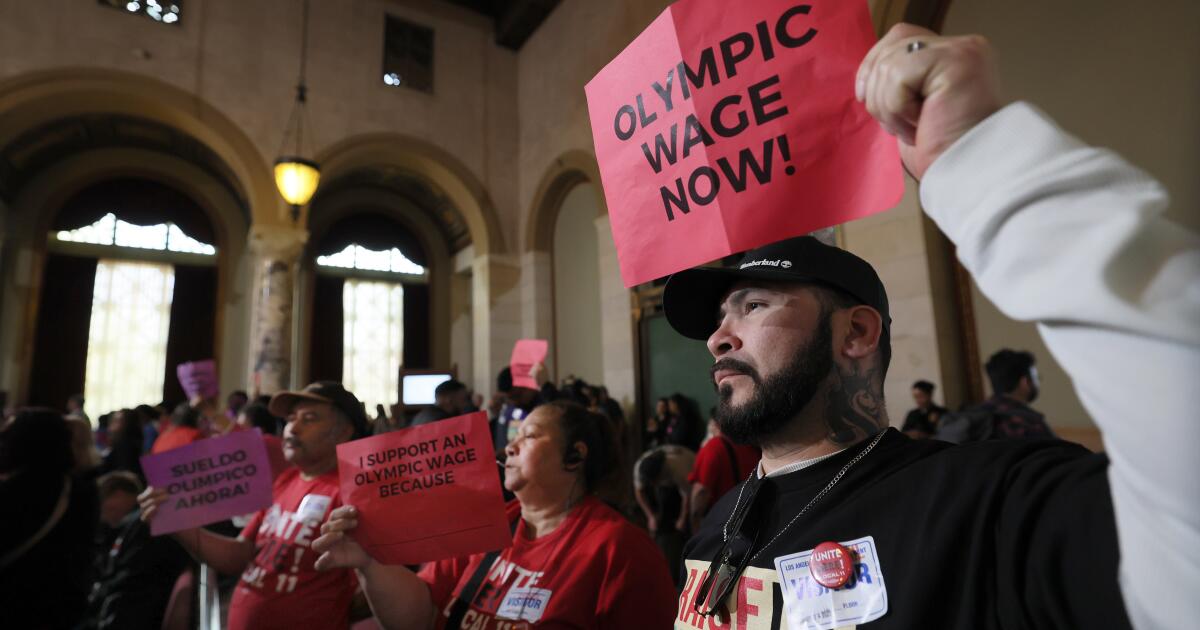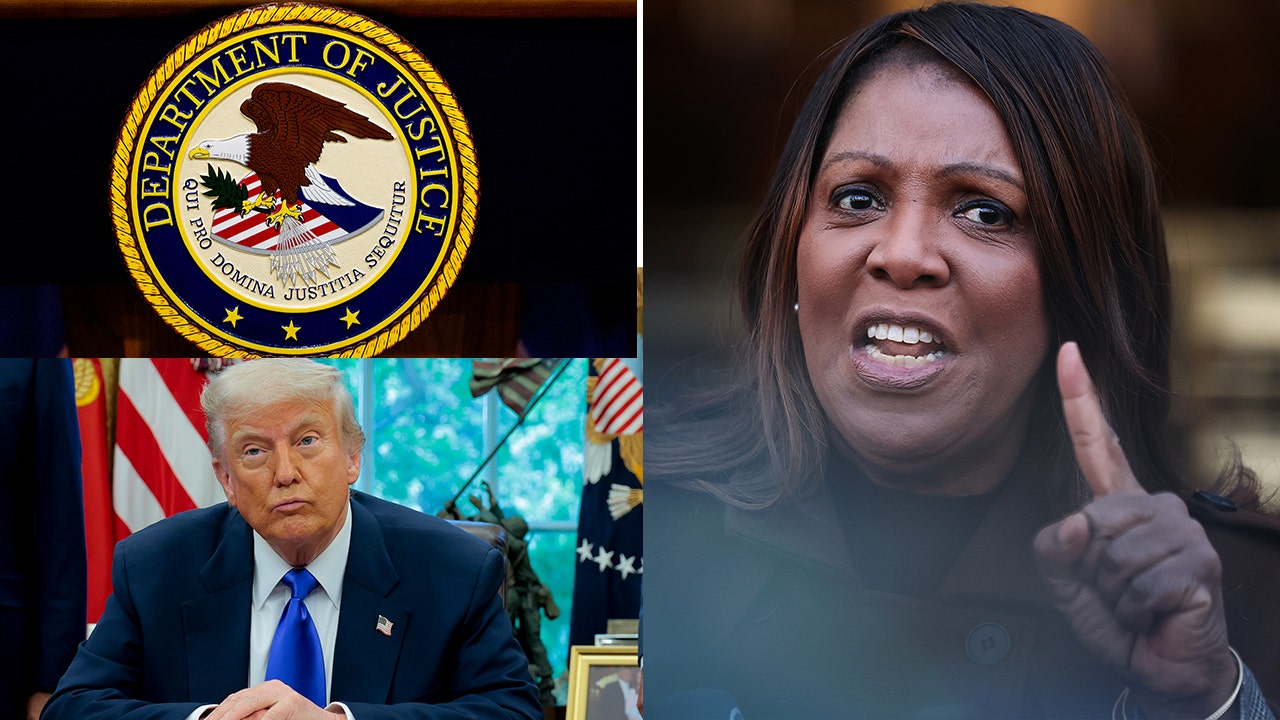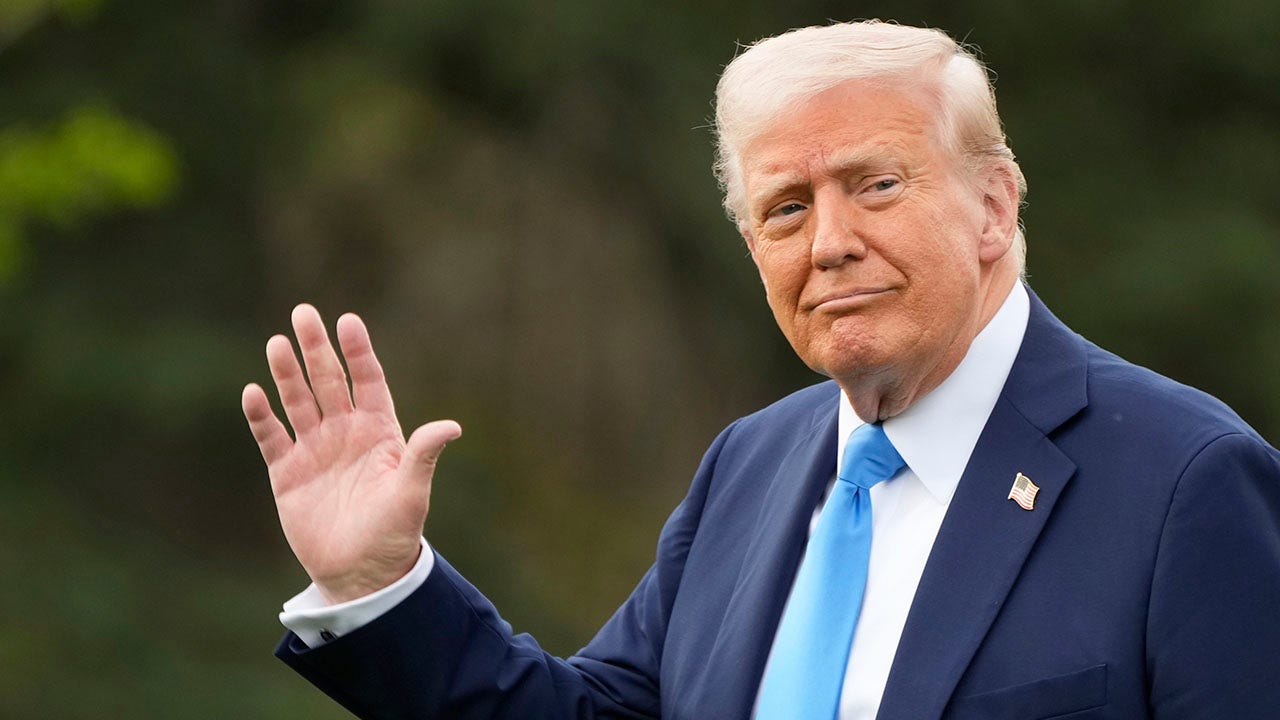Business
Labor regulators seek to force Starbucks to reopen six L.A. stores

Federal labor regulators are looking to force Starbucks to reopen six Los Angeles-area Starbucks stores and 17 other locations that were closed across the country in 2022 in a move that was allegedly done to suppress union organizing.
The complaint filed by the National Labor Relations Board accused Starbucks of closing stores where workers had engaged in union activity and failing to participate in collective bargaining with unionized stores. Of the 23 stores, eight had active unions at the time they were closed.
The NLRB said Starbucks should reopen the 23 stores and reinstate employees who were transferred to other locations, left the company or lost their jobs because of the closures. Employees should also be compensated for lost earnings and benefits, and time they may have spent searching for new jobs.
“This complaint is the latest confirmation of Starbucks’ determination to illegally oppose workers’ organizing,” Mari Cosgrove, a member of Starbucks Workers United in Seattle, said in a statement.
The NLRB complaint “adds to the litany of complaints detailed in the company’s own report” released Wednesday, Cosgrove said. “If Starbucks is sincere in its overtures in recent days to forge a different relationship with its partners, this is exactly the kind of illegal behavior it needs to stop.”
That report, a third-party assessment of the company’s labor practices that shareholders requested in March against the company’s recommendation, found no evidence of an “antiunion playbook” suggesting “surreptitious means of interfering with employees’ freedom to choose.” It also ascribed “missteps” in how Starbucks has engaged with unionized workers mostly to the company’s lack of preparation for a wave of organizing, and to mistakes by local staff with no experience dealing with unions.
Starbucks has until Dec. 27 to respond to the complaint.
A Starbucks spokesperson in an emailed statement referred to comments earlier this month from Starbucks North America Executive Vice President Sara Trilling, who said the company continues to open and close stores to strengthen its portfolio.
“Each year as a standard course of business, we evaluate the store portfolio to determine where we can best meet our community and customers’ needs,” she said in a statement. “This includes opening new locations, identifying stores in need of investment or renovation, exploring locations where an alternative format is needed and, in some instances, re-evaluating our footprint.”
The six Los Angeles-area stores involved in the complaint are at:
- 8595 Santa Monica Blvd., West Hollywood, CA 90069
- 5453 Hollywood Blvd., Los Angeles, CA 90027
- 120 S. Los Angeles St., Los Angeles, CA 90012
- 6290 Hollywood Blvd., Los Angeles, CA 90028
- 1601 Ocean Front Walk, Santa Monica, CA 90401
- 232 E. 2nd St., Los Angeles, CA 90012
Former employees of a closed Kansas City Starbuck location included in the complaint told the Kansas City Star that they had just a few minutes notice when their store was suddenly closed the afternoon of Aug. 22, 2022. They believed the store, one of the first Starbucks locations in the city to attempt unionization, was shut down to halt the efforts to unionize.
“With our tight election, I think Starbucks decided to shut down the store because they thought it was easier just to shut down the store than to have to deal with that,” barista Josh Crowell said.
Crowell was among about 10 workers who picketed outside the store to protest the closing in August. Workers were told they’d receive their last paycheck that week and hear their options for reassignment from management.
At the time, a Starbucks spokesperson said the store closed because of safety issues and crime in the area.
Police records from the three months leading up to the closing showed seven calls to the area. They included an administrative call and one for an armed assault. None of the calls resulted in officers filing a police report.
An administrative hearing in the case is scheduled for Aug. 20, 2024.
Tribune News Service and the Associated Press contributed to this report.

Business
Video: How Staffing Shortages Have Plagued Newark Airport

What’s causing major flight delays and disruptions at Newark Liberty International Airport? Niraj Chokshi, a reporter at The New York Times covering transportation, explains how a staffing shortage has contributed to the chaos and what’s being done to address it.
Business
L.A. council members were told a vote could violate public meeting law. They voted anyway

When Los Angeles City Council members took up a plan to hike the wages of tourism workers this week, they received some carefully worded advice from city lawyers: Don’t vote on this yet.
Senior Assistant City Atty. Michael J. Dundas advised them on Wednesday — deep into their meeting — that his office had not yet conducted a final legal review of the flurry of last-minute changes they requested earlier in the day.
Dundas recommended that the council delay its vote for two days to comply with the Ralph M. Brown Act, the state’s open meeting law.
“We advise that the posted agenda for today’s meeting provides insufficient notice under the Brown Act for first consideration and adoption of an ordinance to increase the wages and health benefits for hotel and airport workers,” Dundas wrote.
The council pressed ahead anyway, voting 12-3 to increase the minimum wage of those workers to $30 per hour by 2028, despite objections from business groups, hotel owners and airport businesses.
Then, on Friday, the council conducted a do-over vote, taking up the rewritten wage measure at a special noon meeting — one called only the day before. The result was the same, with the measure passing again, 12-3.
Some in the hotel industry questioned why Council President Marqueece Harris-Dawson, who runs the meetings, insisted on moving forward Wednesday, even after the lawyers’ warning.
Jackie Filla, president and chief executive of the Hotel Assn. of Los Angeles, said the decision to proceed Wednesday gave a political boost to Unite Here Local 11, which represents hotel workers. The union had already scheduled an election for Thursday for its members to vote on whether to increase their dues.
By approving the $30 per hour minimum wage on Wednesday, the council gave the union a potent selling point for the proposed dues increase, Filla said.
“It looks like it was in Unite Here’s financial interest to have that timing,” she said.
Councilmember Monica Rodriguez, who opposed the wage increases, was more blunt.
“It was clear that Marqueece intended to be as helpful as possible” to Unite Here Local 11, “even if it meant violating the Brown Act,” she said.
Harris-Dawson spokesperson Rhonda Mitchell declined to say why her boss pushed for a wage vote on Wednesday after receiving the legal advice about the Brown Act. That law requires local governments to take additional public comment if a legislative proposal has changed substantially during a meeting.
Mitchell, in a text message, said Harris-Dawson scheduled the new wage vote for Friday because of a mistake by city lawyers.
“The item was re-agendized because of a clerical error on the City Attorney’s part — and this is the correction,” she said.
Mitchell did not provide details on the error. However, the wording on the two meeting agendas is indeed different.
Wednesday’s agenda called for the council to ask city lawyers to “prepare and present” amendments to the wage laws. Friday’s agenda called for the council to “present and adopt” the proposed changes.
Maria Hernandez, a spokesperson for Unite Here Local 11, said in an email that her union does not control the City Council’s schedule. The union’s vote on higher dues involved not just its L.A. members but also thousands of workers in Orange County and Arizona, Hernandez said.
“The timing of LA City Council votes is not up to us (sadly!) — in fact we were expecting a vote more than a year ago — nor would the precise timing be salient to our members,” she said.
Hernandez said Unite Here Local 11 members voted “overwhelmingly” on Thursday to increase their dues, allowing the union to double the size of its strike fund and pay for “an army of organizers” for the next round of labor talks. She did not disclose the size of the dues increase.
Dundas’ memo, written on behalf of City Atty. Hydee Feldstein Soto, was submitted late in Wednesday’s deliberations, after council members requested a number of changes to the minimum wage ordinance. At one point, they took a recess so their lawyers could work on the changes.
By the time the lawyers emerged with the new language, Dundas’ memo was pinned to the public bulletin board in the council chamber, where spectators quickly snapped screenshots.
Business
Epic Games says Apple blocked 'Fortnite' in U.S. app store

Epic Games on Friday said that its popular game “Fortnite” will be offline on Apple devices because the iPhone maker blocked its recent app update.
The dispute comes just weeks after Epic Games and other app developers cheered a judge’s ruling that limited the commissions that Apple makes through third party apps distributed through its app store.
Apple received a scathing rebuke from U.S. District Judge Yvonne Gonzalez Rogers, who sided with Epic Games, which alleged that the Cupertino, Calif., tech giant ran afoul of an order she issued in 2021 after finding the company engaged in anticompetitive behavior.
Under the ruling, Apple can’t collect commissions on purchases U.S. customers make through links inside iPhone apps that direct them to outside websites. Developers, which make money by selling digital goods and services via their apps and games, want to avoid giving Apple a cut of their revenue by sending customers to other websites.
“That [Apple] thought this court would tolerate such insubordination was a gross miscalculation,” the judge wrote in her ruling.
Many developers applauded the court’s ruling, which limits what they call the Apple tax, and said they would pass on the savings to customers.
Epic Games’ Chief Executive Tim Sweeney earlier this month said “Fornite” would return to the App Store in the U.S. and possibly worldwide if Apple extends “the court’s friction free, Apple tax-free framework” globally. But on Friday, the “Fortnite” X account said that Apple blocked its submission.
“Now, sadly, Fortnite on iOS will be offline worldwide until Apple unblocks it,” the account posted. Epic Games did not return requests for further comment.
Apple said on Friday that it asked that “Epic Sweden resubmit the app update without including the U.S. storefront of the App Store so as not to impact Fortnite in other geographies.”
“We did not take any action to remove the live version of Fortnite from alternative distribution marketplaces,” Apple said in a statement.
Rob Enderle, principal analyst with advisory services firm Enderle Group, said the recent ruling applies to the U.S. and Apple wants to retain the rest of its control worldwide. Apple makes significant money through apps.
“Apple is using their … strength to prevent ‘Fortnite’ from benefiting globally from their core win,” Enderle said.
Epic Games filed its lawsuit against Apple in 2020. “Fornite” generates revenue by letting people buy digital goods, such as “skins,” in the game, and Epic wanted to let users buy items outside the Apple system to avoid the company’s commission.
While the judge ruled that Apple did not have a monopoly in the mobile gaming market, the court ordered Apple to let app developers put links in its apps so customers could make outside purchases and bypass the company’s commission fee. Apple, however, defied the order, the court said.
Apple limited the ways that developers could communicate with its customers about out-of-app purchases and used wording that discouraged users from clicking on those links, the judge wrote. Apple would charge a commission fee for any goods or services purchased within seven days of a consumer clicking on a link that took them out of the app, the ruling said.
Apple is appealing the ruling and has said it strongly disagreed with the judge’s decision.
-

 Austin, TX1 week ago
Austin, TX1 week agoBest Austin Salads – 15 Food Places For Good Greens!
-

 Technology1 week ago
Technology1 week agoNetflix is removing Black Mirror: Bandersnatch
-

 World1 week ago
World1 week agoThe Take: Can India and Pakistan avoid a fourth war over Kashmir?
-

 News1 week ago
News1 week agoReincarnated by A.I., Arizona Man Forgives His Killer at Sentencing
-

 News1 week ago
News1 week agoWho is the new Pope Leo XIV and what are his views?
-

 Entertainment1 week ago
Entertainment1 week agoReview: 'Forever' is a sweet ode to first love (and L.A.) based on Judy Blume's novel
-

 News1 week ago
News1 week agoEfforts Grow to Thwart mRNA Therapies as RFK Jr. Pushes Vaccine Wariness
-

 Politics1 week ago
Politics1 week agoDepartment of Justice opens criminal investigation into NY AG Letitia James















